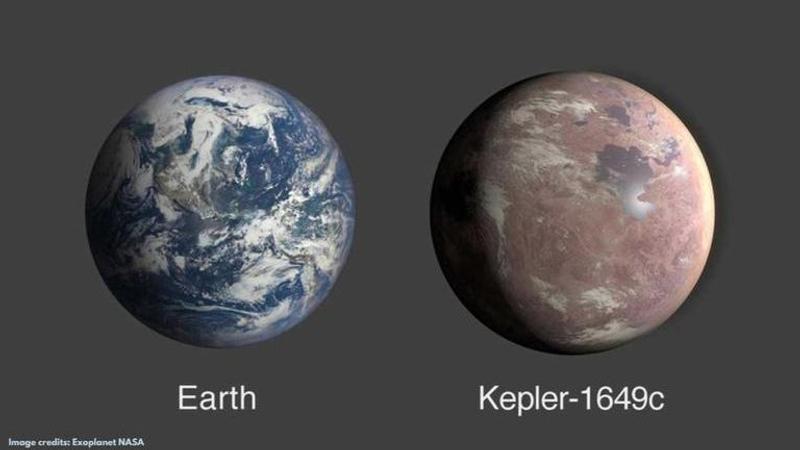Published 13:53 IST, April 17th 2020
Scientists make major discovery, find Earth-like exoplanet that is 300 light-years from us
Scientists have discovered an Earth-like exoplanet orbiting in its star's habitable zone, located 300 light-years from our home planet. Read on for all details.

A team of NASA scientists, with the aid of reanalysed information through NASA’s Kepler space telescope, have found an Earth-size exoplanet orbiting within the star's habitable zone, the area which surrounds a star in which the rocky planet could support water in its liquid state.
Kepler-1649c – Exoplanet exploration
Scientists were able to discover this planet, known as Kepler-1649c, when they were going through old observations from Kepler, that was already retired two years ago. The previous searches with a computer algorithm were not able to identify it, but researchers had reviewed the Kepler data again and were able to identify it as a new planet.
Out of all the exoplanets that were discovered by Kepler, this distant planet is located around 300 light-years away from Earth. It is also quite similar to Earth when it comes to its size and the estimated surface temperature.
How big is the new planet?
The newly discovered planet is just 1.6 times bigger than Earth and the amount of starlight it receives from the sun is about 75 per cent. This indicates that the exoplanet's temperature could be similar to that of Earth and there wouldn’t be much difference.
However, a major difference between the newly discovered planet and our home planet is that unlike Earth, the new planet orbits a red dwarf. The transatlantic scientists have also revealed that this type of star is known for its stellar flare-ups that could make the planet’s environment quite difficult for potential life to thrive.
As per Thomas Zurbuchen, associate administrator of NASA’s Science Mission Directorate in Washington, this intriguing and distant planet gives an even greater hope that a second Earth lies among the stars, which is waiting to be discovered. He also added that the data which had been gathered from missions like the Kepler and Transiting Exoplanet Survey Satellite (TESS) will continue to yield interesting discoveries as people in the science community refine their abilities to look for promising planets year after year.
However, there are a number of things that are still not known about this newly discovered planet, including its atmosphere. It is also not clear if it actually has one.
Also Read | MASSIVE: Indian Scientists Reveal First Microscopic Image Of Coronavirus From 1st Patient
Image credits: Exoplanet NASA
Updated 13:53 IST, April 17th 2020




